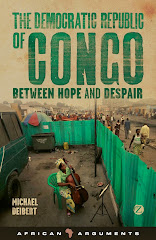The New York Times had a highly interesting Op-Ed today on the way insurance giant Metropolitan Life's sale of Stuyvesant Town and Peter Cooper Village - the 110 building East River enclave built in the 1950’s, as housing for World War II veterans and their families - has increased the fears on many New Yorkers that "Manhattan is becoming more and more off limits to all but the truly wealthy." As someone has never been able to afford to live in Manhattan, opting for and in fact preferring the ethnic polyglots of Brooklyn and Queens, the article helps put in perspective the quandary that many cities face, but is perhaps brought out in greatest relief here in the Big Apple.
The lifeblood of this city comes from its middle and working classes, the thousands of waitresses trying their hand at acting for the first time as they arrive from Minnesota, the young guys working grunt jobs shuffling papers at law firms or advertising agencies while secretly working on that first novel or first screenplay, those musicians who deliver furniture as a way to make ends meet, not to mentions the tens of thousands of immigrants who drive New York's taxis, keep its subway system running (ahem), run the myriad of restaurants that give the five boroughs their endless culinary vocabulary and give the gift of their art, music, language and intellect to this sprawling mass of humanity we know as New York. If we, year by year, are priced farther and farther away from the nexus of the expression of that energy, if not its creation - which Manhattan has been and remains for the entire world - then what? What comes to fill the place of all those who give New York its personality but can no longer afford to live within its boundaries?
My dear friend Nomi Prins, a journalist and Senior Fellow at Demos, has recently come out with a new book tackling just such subjects, Jacked: How "Conservatives" are Picking your Pocket (Whether you voted for them or not), published by PoliPointPress, which examines the real struggles that the working class in America face today, struggles that often get ignored in both the mainstream and self-described "progressive" press, which seems to prefer ceaseless armchair commenting on foreign affairs to actually getting one's feet wet with reporting. Nomi did get he feet wet, traveling through the South in the aftermath of Hurricane Katrina, far west to Seattle, to Detroit and beyond, as the book conducts a guided tour of the American wallet. Literally. Examining a driver's license leads to a discussion of gasoline prices, energy policy, and Iraq, while the Social Security card leads Ms. Prins' analysis that the Bush administration's efforts to "reform" Social Security have in fact weakened it. Having not finished the book yet, I can't give a full account of it, but so far it is an engaging look at the actual hardships of working people in Bush's America, and as such should definitely be worth a look.
Monday, September 18, 2006
Subscribe to:
Post Comments (Atom)




No comments:
Post a Comment